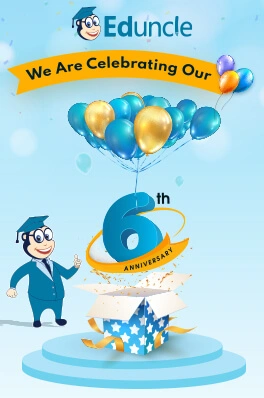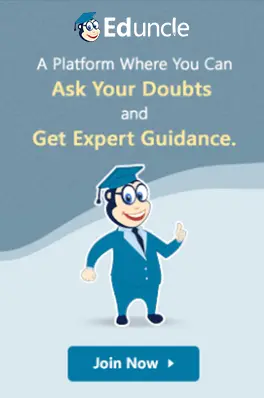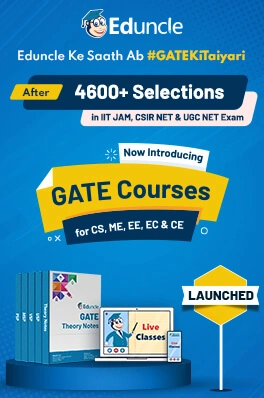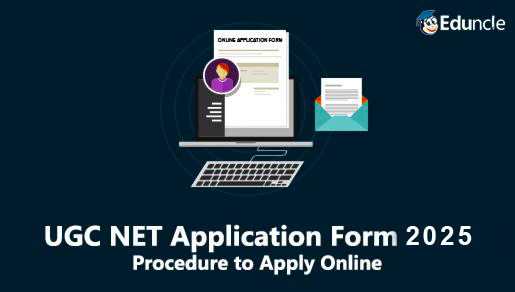 After successfully qualifying for the UGC NET exam, you must start preparing for the Lectureship & JRF interview.
After successfully qualifying for the UGC NET exam, you must start preparing for the Lectureship & JRF interview.
Many institutions/universities conduct UGC NET Interview rounds for hiring the right candidates for JRF & Assistant Professor post. The main motive of conducting the UGC NET Interview is to present yourself in a way that convinces the interviewers to hire you.
To help you achieve success, we have designed a complete guide you should follow before appearing for a job interview-
Things to do before appearing for UGC NET Interview
UGC NET assistant professor & JRF interview questions and answers
UGC NET Interview ethics for JRF & Lecturer Post
9 Things to do Before Going for UGC NET Interview Round
There are certain important things to keep in mind before you go for a UGC NET job interview. These will help you to be more confident, positive, and focused throughout the process.
Check below, the ‘To-do list’ we have prepared for UGC NET Lectureship interviews and UGC NET JRF interviews.
For a smart preparation approach, we have provided some important questions with answers that are frequently asked during the lectureship & JRF interviews.
UGC NET Assistant Professor & JRF Interview Questions and Answers
After consulting academicians and experts, we have figured out some common questions asked by the recruiters, along with their appropriate answers.
|
NOTE: 1. You don’t need to answer in the same way that we’ve written below. Just be yourself! Implement your own style while answering the questions during the UGC NET Interview Round for JRF & Assistant Professor. 2. Be specific, truthful & confident. This will reflect your personality. 3. Don’t forget to Smile. |
Ques 1: Tell us something about yourself?
This will be the first common question. Keep your introduction short & sweet.
Tell them about your name, education background including the subject for which you will be teaching the college students, interests, job experiences and what achievements you have gained in your life previously.
Ques 2: Why do you want this job?
If this is the opening question, don’t miss out this excellent opportunity to create a dreadful impression on Interviewers.
Be confident and specific about your goals and answer positively about the same. It’s very important to structure your answer well.
Just a few seconds thought before answering can help you state the points in an accurate manner but don’t take a long time for thinking about it.
For example, "There are three main reasons why I see myself as a good fit for this role".

Ques 3: What Educational Qualifications do you possess?
While explaining your academic background and educational qualification, use a professional tone to highlight the awards and degrees you have achieved. And, mention the certificates or project/research experiences if you had in your student life.
Ques 4: What is your Teaching Philosophy and what innovation would you like to bring?
This question’s answer might create a great impact on the interviewers. As you would be teaching college-level students, so being innovative will be the topmost requirement for this position.
You must inherit the innovative teaching style to stand out amongst other candidates. Here, with the answer to this question, you can tell them why should they hire you.
So, gather up all your teaching experiences, choose the one that people liked the most and then answer confidently.
Ques 5: What teaching skills and techniques have you used over the past years?
Stay Honest and answer the most favorable teaching technique which benefited your students. If you have any previous teaching experiences, you can add few points and experiences along with the improvisation you would like to do further.
Ques 6: What courses are you particularly interested in teaching & research and why?
Tell them about your specialization, degrees, and experience you have for that subject. Also, justify the reason why would you be teaching or research the same subject.
Ques 7: What challenges are you looking for in this position?
The best way to answer questions about the challenges you are seeking is to discuss how you would be able to effectively utilize your skills and experience to resolve those challenges.
You can also show your interest in accepting challenges, learning from them and solve them with great efficiency.
Ques 8: What do you know about our institute?
The answer should be based on your research which you had done before coming for the Interview.
Tell them about the courses which are being offered by the institute and when the institute was established, how many students are its members at present time and so on.
Ques 9: What are your salary expectations?
Expecting less salary will reflect that you are not sure about your skills. Be straightforward and react wisely here.
Your expectation shouldn’t be very high but at least propose enough to proceed your career with the concerned institute.
Ques 10: Do you have any questions to ask us?
Never ask for a salary, perks, leaves, and company’s policies. You may ask more about the institute and its culture etc.
Download UGC NET Mock Test Papers Free PDF
Ques 11: What makes you different from the other candidates?
While answering this question, don’t go negative. Turn your answer in a positive manner and tell them about your good qualities only.
Make sure you give examples from your own skills to support your assertions.
If there is anything you do that makes you stand out, for example, skill or area of experience, mention that too.
Ques 12: How does your work fit with the group/department/university?
Think and share about specialisms, research clusters, possible collaborations, undergraduate or graduate curricula, interdisciplinary links with other departments, outreach initiatives, etc.
Ques 13: Where do you see yourself in 10 years' time?
Here share achievements rather than status. This question also gives you an opportunity to show that you have a vision for yourself in your concerned field.
Ques 14: What if your experiments fail and you can’t get success in your work?
It is very important to stay confident and motivated at such tough questions. Don’t lose faith in your capabilities and the work done by you.
Don't pretend that your research can never fail. Doing so will probably come across as denial or, worse, a lack of self-awareness. The thing which matters most is how you handle the situation and overcome it.
Ques 15: Why should we hire you?
This is the question where you can wow them with your talent highlights. Explain 3-4 major points including your achievements, talents, strong points, and your way of working in such a way to make them hire you.
Get Free UGC NET Study Plan & Boost your Learning
10 UGC NET Interview Tips for JRF & Lectureship Post - Every Candidate Should Follow
The attire you choose to wear at the time of the interview and the way you enter and exit the hall are the essential aspects that reflect how you come across as a potential professor or Junior Research Fellowship.
You are being observed very closely throughout the session and this is when you set your first impression on the interviewers. They notice your every single move, posture, your look, voice, attitude, facial expressions, etc.
To make you aware of the UGC NET Interview ethics and correct gestures during the job, we have mentioned few important factors below:
1. Greet interviewers with a great smile and a firm handshake. This shows confidence and professionalism.
2. While sitting on the chair, keep your hands on your lap and do not cross your legs. You can either keep your crossed arms on the table.
3. Keep your posture straight.
4. Maintain complete eye contact. And during the discussion nod your head to show that you’re listening and paying attention to what they’re saying.
5. Don’t use words like um, like, uh, you know, wanna, gonna, cya, heya.
6. Don’t hesitate or twist your tongue while answering the questions.
7. Don’t show any kind of negativity or nervousness. Stay gentle.
8. Show your interests in the job and the profile which they are offering.
9. Don’t lie at any point or fake for anything.
10. At the end of the interview, conclude with another handshake and thank interviewers for the meeting.
FAQs About UGC NET Interview
After getting the basic details and tips on how to prepare for UGC NET interview for lectureship & JRF profile, you may have some further relevant questions which we have covered below.
Here are some frequently asked questions by students regarding UGC NET lectureship & JRF interviews:
Q1. Is there any interview in UGC NET?
Ans. No, there is no interview round for qualifying for the UGC NET exam. However, you may have to appear for interviews when you apply for jobs in the universities/colleges as per their norms.
Q2. What are the questions asked in an interview for a lecturer or JRF?
Ans. Questions related to your research, subject, future career, and roles and responsibilities are generally asked in the UGC NET JRF & lectureship interviews.
For more details, you can visit the common questions asked in the UGC NET Interviews.
Join Eduncle Exclusive UGC NET Channel!
Q3. How can I get a job after clearing the UGC NET exam?
Ans. After qualifying for the NET exam, you will get UGC NET E-certificate for lectureship or JRF award. Through this, you can apply for jobs at various universities and colleges from the official job portal. You have to appear for a personal interview if your institution demands.
Q4. What is the salary of a UGC NET qualified lecturer or JRF?
Ans. Salary for different posts of lecturer is mentioned below:
Assistant Professor: 9.33 lakhs per annum
Professor: 11.88 lakhs per annum
JRF: 8 lakhs per annum
Hope, you now have a better understanding of the UGC NET interview process and know how to appear for it.
Following the above-mentioned UGC NET, Interview tips and ethics will help you to be more confident and set a positive impression on interviewers.
If you have further queries regarding this, please mention them in the comment box below.
Also, if you want to give an extra edge to your preparation for UGC NET then download the Eduncle App, where you can get answers to all your doubts from a pan-India community of students and experts.
Thank You.






















